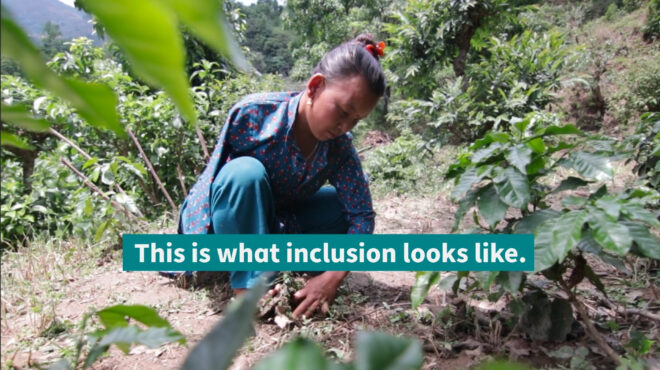International Day of Rural Women is a time to celebrate the invaluable contributions of rural women to our world.
These women are the backbone of many communities, producing food, caring for families, and sustaining livelihoods.
Launched in 2022, the five-year Global Labor Program – Inclusive Futures brings together a consortium of nine Kenyan and international partners, who are committed to empowering rural women and ensuring they have the skills, knowledge and opportunities to thrive.
Sorghum is a staple crop in many parts of the world, providing sustenance and income for millions. However, women often face significant barriers to participating fully in sorghum farming such as a lack of property rights, gender discrimination and poor access to resources including land, agricultural skills and access to markets among others. Through our programme in Kenya, we’re working to dismantle these barriers by working in a consortium to offer training on disability inclusion, labour rights, and business development.
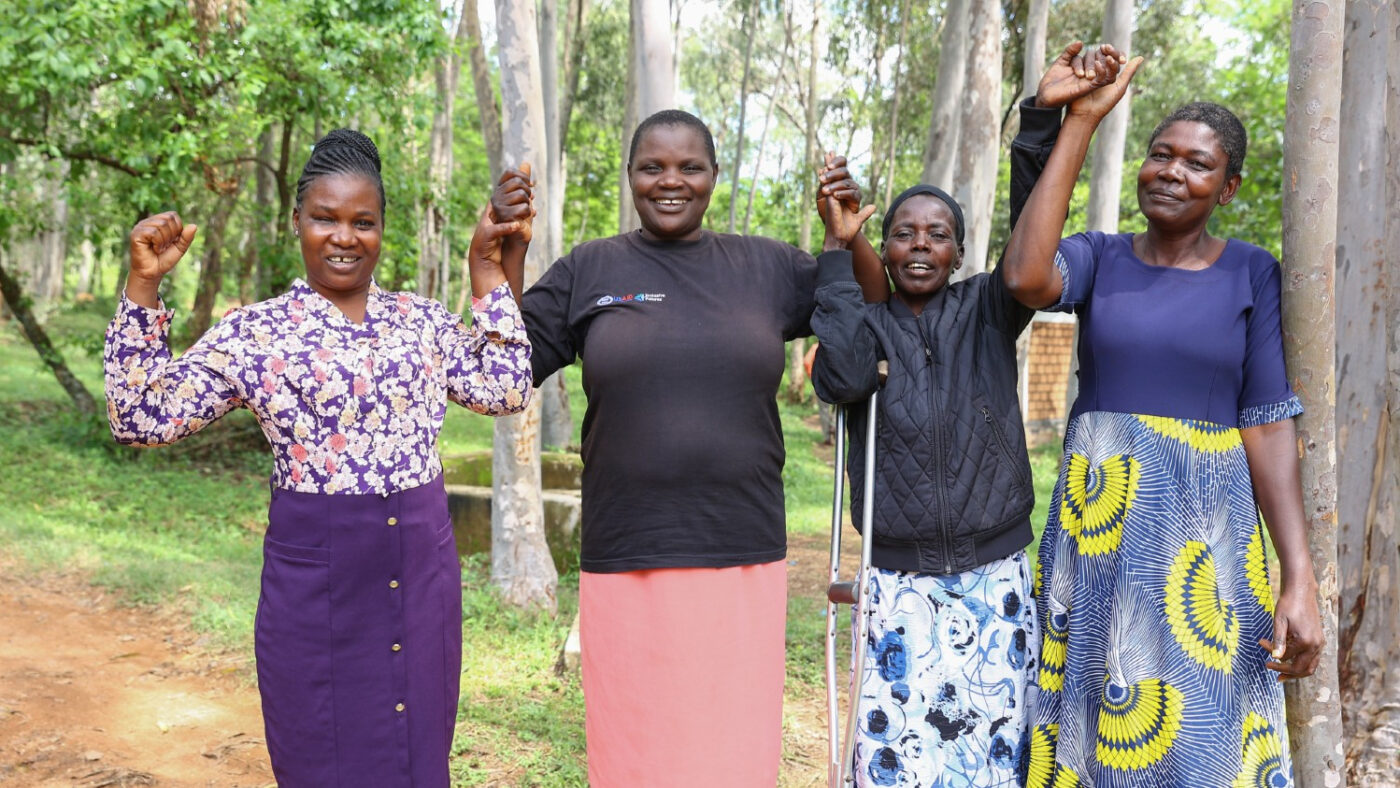
Inclusive sorghum farming
The programme also trains sorghum farmers on best practices in agriculture and has partnered with East African Breweries Limited (EABL) to buy sorghum produced by the farmers.
One of the most marginalised groups within rural farming communities are women with disabilities. The programme is working closely with organisations of persons with disabilities to empower these women and promote their inclusion in sorghum farming. Through these partnerships, the programme has been able to provide targeted support, training, and advocacy opportunities for women with disabilities, enabling them to overcome barriers and participate meaningfully in agricultural activities.
“Empowering women with disabilities in rural areas is not just about inclusion; it’s about creating opportunities for economic independence and food security. Through the Global Labor Program – Inclusive Futures, women in Homa Bay are breaking barriers in sorghum farming, advocating for their rights, and ensuring their voices are heard in agricultural policies. Together, we are building a future where every woman, regardless of ability, can thrive,” explains Masline Ngala from Homa Bay County Disability Forum.
Traditionally excluded from agricultural activities, women with disabilities have been given an opportunity to show they can become profitable farmers through the programme. Our data shows that 710 women with disabilities are now farming sorghum out of a total of 2,279 women farmers, demonstrating the programme’s unwavering commitment to inclusion. During the last rainy season, women with disabilities, on average, harvested more sorghum than anyone else, including men and women without disabilities. This completely disproves commonly held stereotypes about women and women with disabilities not being good farmers.
Eunice Akinyi, a woman with a disability from Homa Bay, shares her experience. “Before the programme, I couldn’t provide for my family. But now, I am a proud sorghum farmer. I have learned new skills, gained confidence, and am able to support my children,” she says.
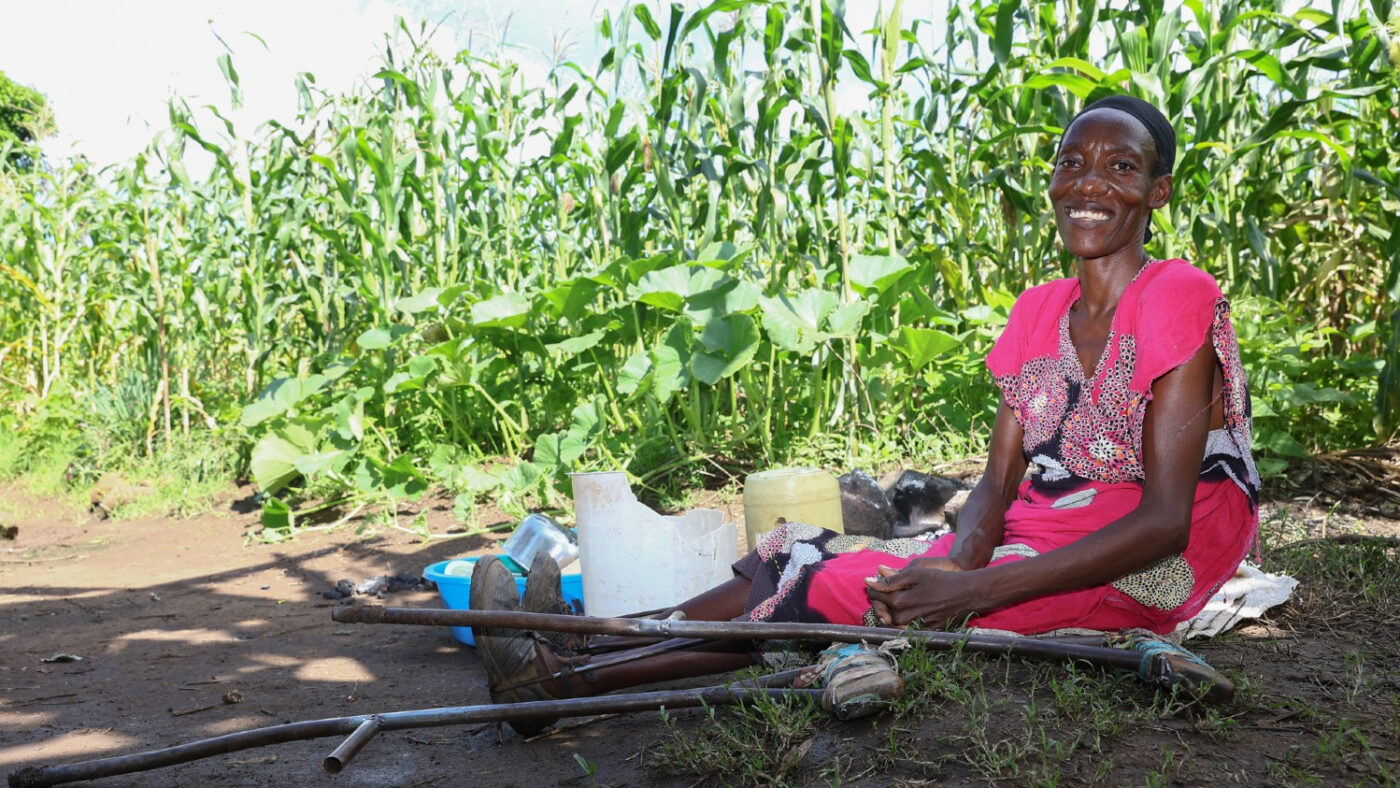
Building solidarity
The programme is also fostering a sense of community and solidarity among women. By bringing together women from different backgrounds and abilities, it creates a supportive network where they can share experiences, challenges, and solutions.
The Kenya Female Advisory Organization (KEFEADO), a partner in our consortium, is helping women farmers have better lives. They’re working to break down barriers that hold women back, like unfair treatment and negative attitudes. They’re also pushing for changes that will help everyone, especially women with disabilities, have equal rights. KEFEADO is teaching people about gender equality and inclusion, and working with businesses to make sure everyone has fair opportunities.
As Easter Achieng, Executive Director of KEFEADO, says: “On this International Day of Rural Women, we celebrate the resilience and strength of women with disabilities in rural areas. Through our work as part of the Global Labor Program – Inclusive Futures, we have witnessed these women transform their lives and communities by actively participating in sorghum farming.”
“Their journey from facing cultural barriers to becoming economic leaders is a testament to their dignity and determination. Together, we are ensuring that their voices are not just heard but amplified, driving social change and economic empowerment,” she adds.
Catalyst for community development
Empowering rural women is not just about gender equality; it’s about building stronger communities and ensuring food security for all. The impact of empowering rural women extends beyond individual families. It creates a ripple effect that benefits entire communities.
Thanks to the Global Labor Program – Inclusive Futures, today there are more women in rural communities farming and earning a living, and more women standing up for their rights and taking up leadership roles in their communities.
“There is a big difference since joining the programme, I now have knowledge about how to market and I have also received several trainings. After harvesting, I now know where to take my produce,” says Pelesiah Atieno. “The programme taught me better farming practices and what seeds would generate more yields on my farm. I followed this and in turn, my yields are higher. Besides the trainings, the programme will also give us loans to procure seeds.”
As we celebrate International Rural Women’s Day, we must remember that there is still much work to be done. The Global Labor Program – Inclusive Futures aims to prove that by supporting people in the production and supply chains of big businesses, we can create more jobs for men and women with disabilities and improve working rights for everyone.
Together with our partners, we’re committed to sharing what we’ve learned to help others design and deliver inclusive economic empowerment and labour rights programmes in other countries and markets to create a more inclusive and sustainable future. Empowering rural women is about building a better world for everyone.
More news and opinions
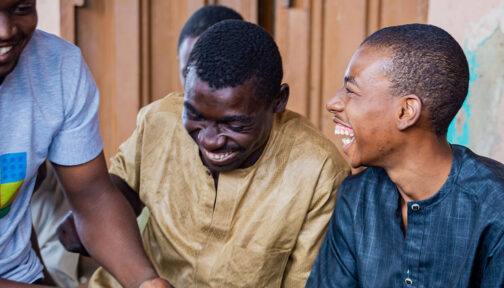
Global Disability Summit 2025: Closing the gap between disability inclusion and development
Inclusive Futures is attending the summit in Berlin on 2-3 April. Visit our booth or attend our panel event to connect with us and learn more about our programme insights.
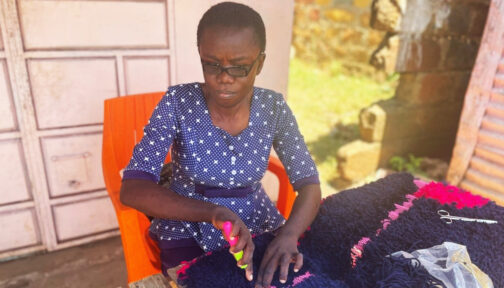
Sense International wins prestigious Zero Project award for its work with entrepreneurs with disabilities
Sense International has won a 2025 Zero Project Award for empowering individuals with deafblindness and complex disabilities in Kenya to build successful businesses and achieve financial independence.

Driving change: launching the six principles for inclusive development
Inclusive Futures and the UK Foreign, Commonwealth & Development Office marked International Day of People with Disabilities by jointly hosting an event to launch the six principles for inclusive development.
Sign up to Inclusive Futures emails today
Sign up to Inclusive Futures emails today
Want to hear more from Inclusive Futures? Sign up to receive the latest research from our programmes and resources to help make your work inclusive of people with disabilities.
For more information see our privacy policy
